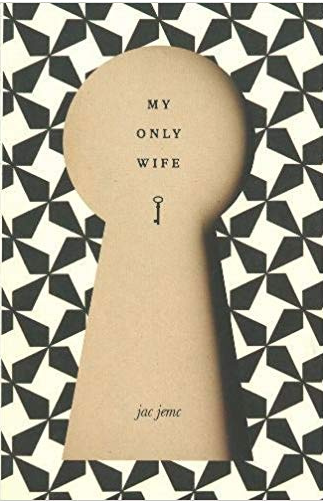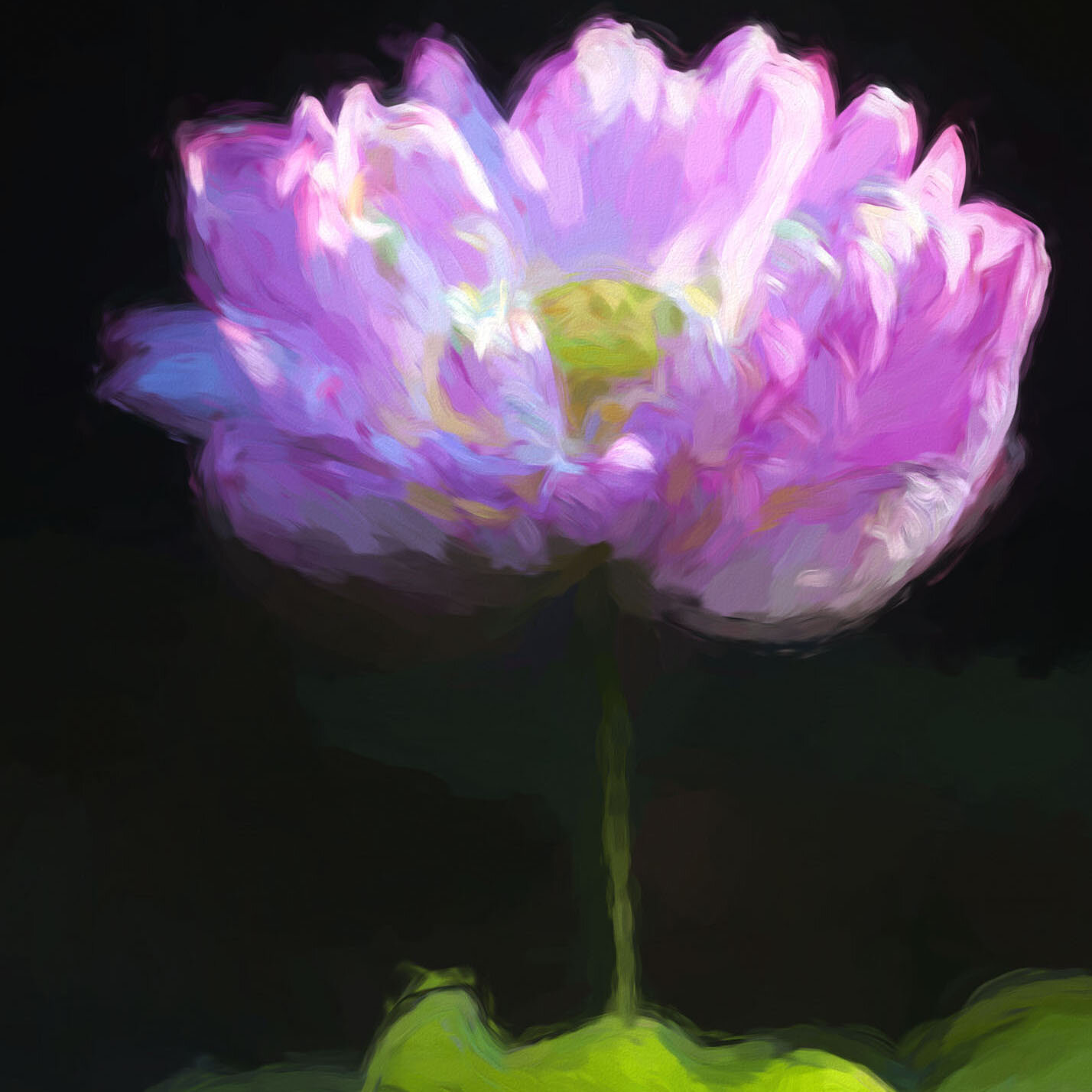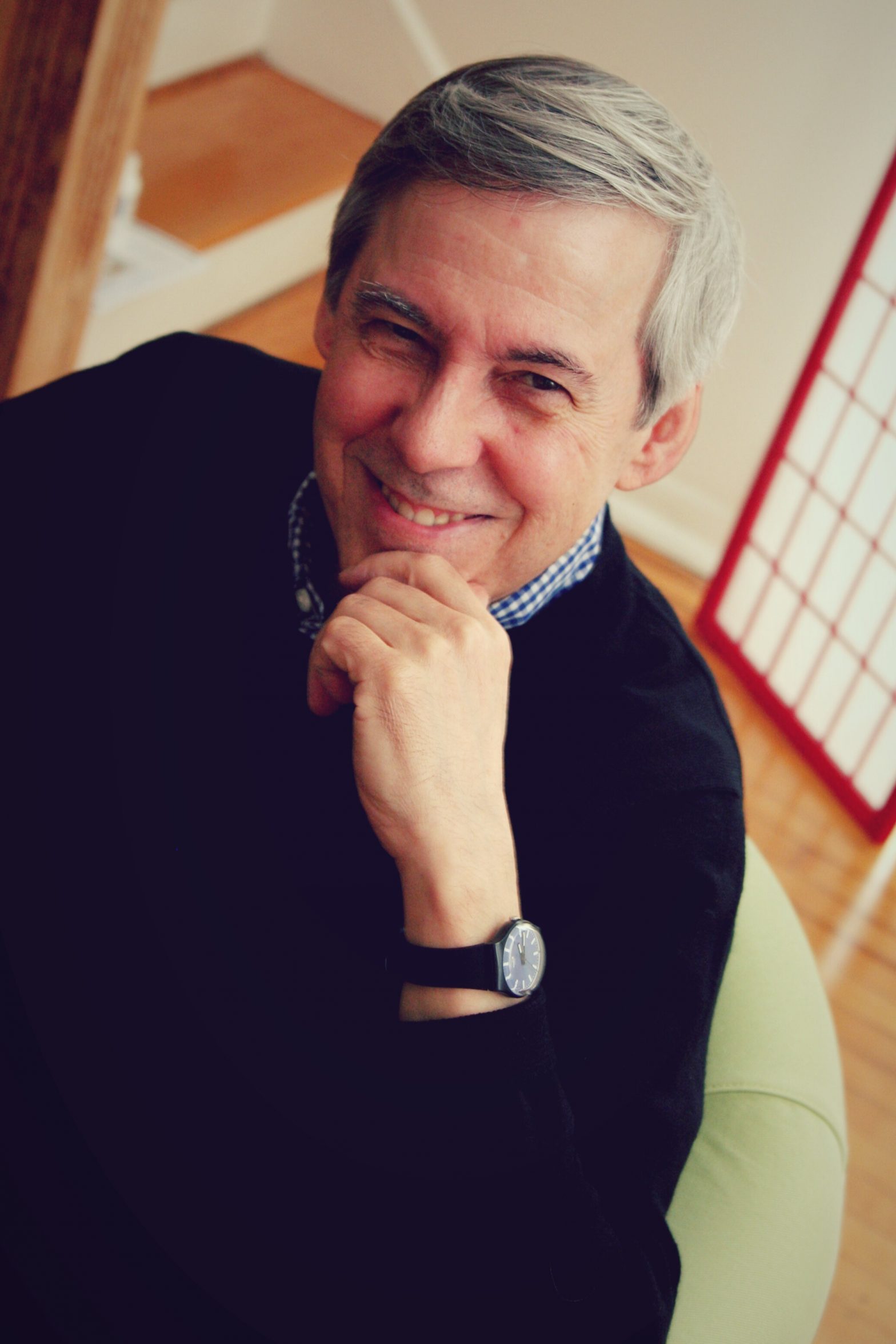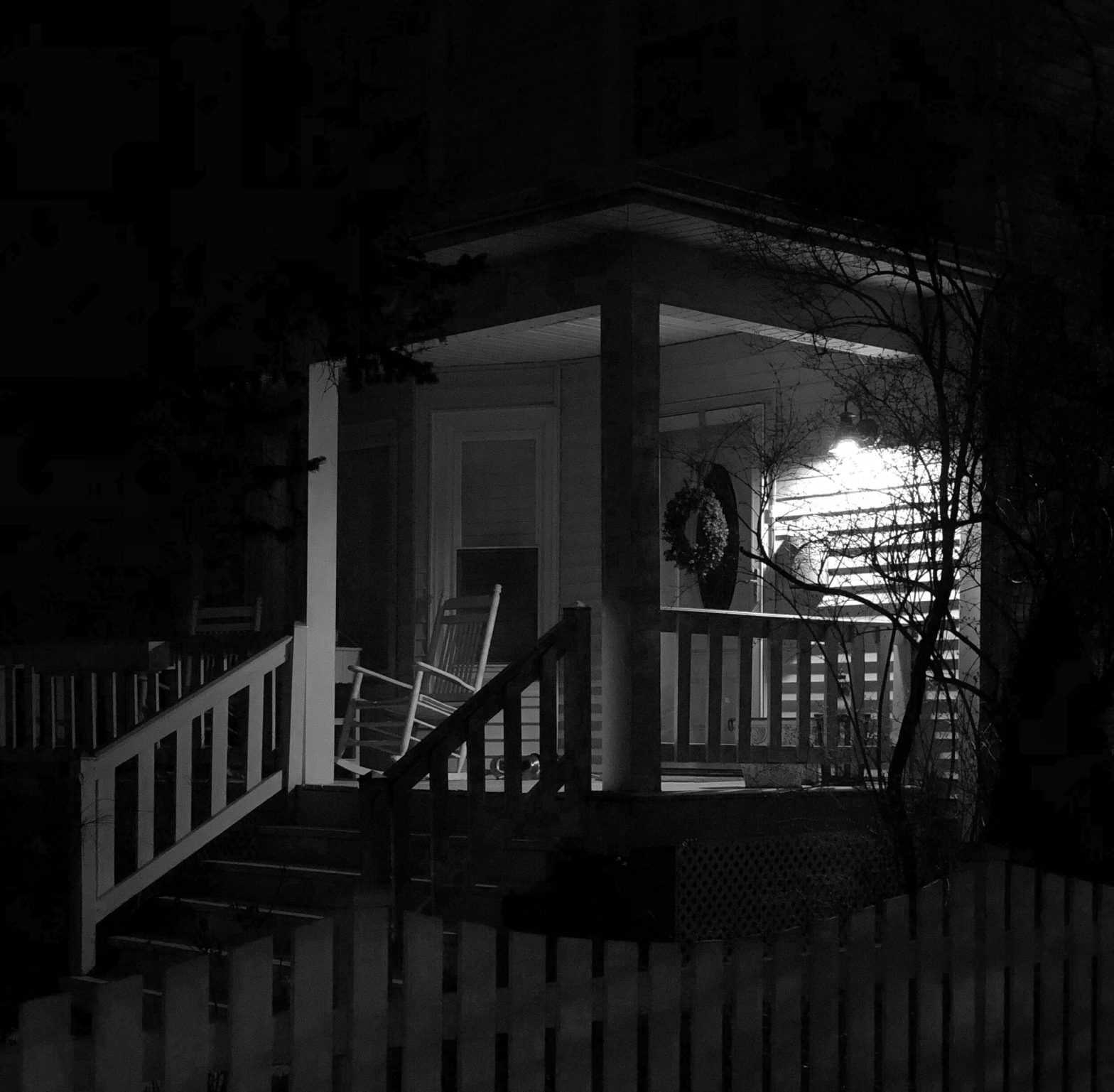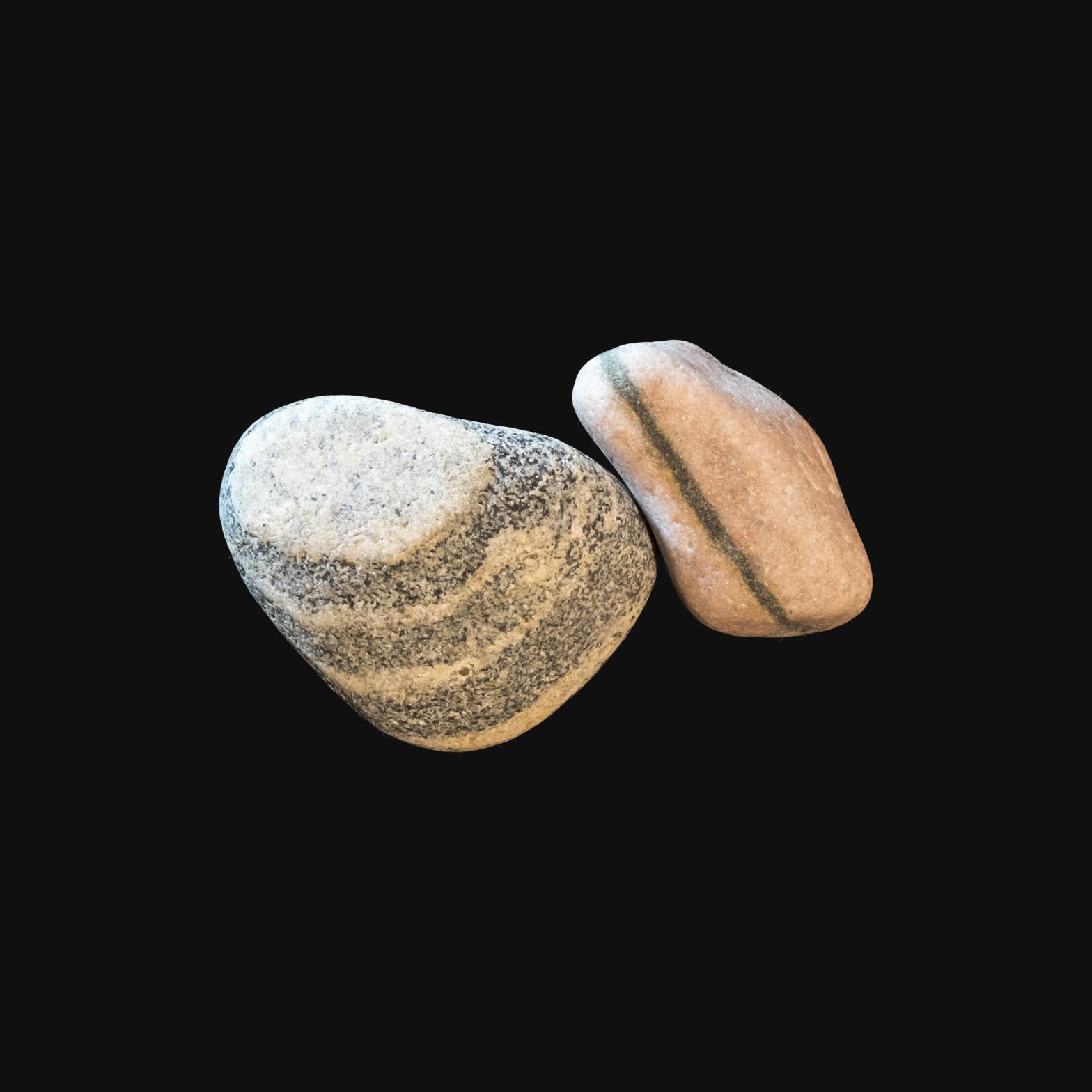Manhunt
She said she was going on a manhunt, sir. Charla Alexander, hometown bombshell and resident hog callin’ champion, was plannin’ on settlin’ down and raisin’ a family with the next good fella without enough good sense to keep passin’ through this town and not get hung up on her. But she said that before she did that, she was goin’ on a manhunt. You don’t know this, because you’re the new kid, but she had always had a way with the menfolk of this town, and she sure wasn’t shy about it, so it was more of a shock about the settlin’ down part than the whole manhunt thing. What kind of manhunt, you ask? Well, ain’t it obvious? She was goin’ on a manhunt for, well, men.
I was in the town bar when she announced it. There’s only one bar in Warwick, Tennessee, and it’s called Sleazer Sal’s. Not because Sal is a sleaze, but because if Sal caught ya creepin’ on one of his lady customers, there was a glass with your name on it comin’ for yer head, and if the first shot didn’t take you out, there was a beer stein to finish the job. Sal must have killed a dozen guys, or at the very least left a bunch of ‘em with mental problems, but this ain’t no snitchin’ town, so I didn’t say any of that. It ain’t that Sal’s a vicious guy, he jus’ hates menfolk creepin’ on innocent ladyfolk, no matter how pretty they are. He don’ creep on the customers and ‘spects us all to do the same. Anyways, I was sittin’ at the bar, nursin’ a whiskey like I do after work nearly every day, while Sal polished a glass for the next pedo’s head when the door banged open in its usual fashion. The early afternoon light flashed in through the dust that had been startled off the usual drunks. The shafts separated when she swaggered in donning an outfit that left nothing to the imagination, her MO. I watched as that big-blonde-haired, Big-Red-gum-chewin’, denim-scantily-clad woman practically pranced her way up to the bar.
Now, I know you’re new here and you don’t really know who Charla is, so I gotta tell you a few things. First you gotta understand, Charla ain’t no salad eatin’ chick. She was a big-boned girl, like she had always been. She had so many love-handles her boyfriends called her “The Dresser Drawer.” She didn’t just have a muffin top; she had the whole bakery. But that’s why we all loved her. We all wanted the good big parts, if you catch my drift, and we were all grown enough to handle her. Now, I tell ya this because it’s important for this next part. You see, she didn’t just wanna make no silly-ass announcement. No, she wanted everybody in the bar to know what it was she was gonna do, and she was gonna make sure we all heard it. So she gets up on the bar.
Sal don’t normally take kindly to folks who wanna get intimate with the only barrier between him and the rest of the world, but like the rest of us, he had a sweet spot for Ms. Alexander. He treats her like the li’l’ sister he never got, dotin’ on her an’ coverin’ her tabs an’ whatnot. So she gets up on the bar, with help from Mike and Jess, the two oldest drunks to survive their nights at Sleazer Sal’s just enough to come back the next noontime for their gins. So they help her up like they knew she was about to do this, even though at two o’clock in the afternoon, they were too drunk to give a damn about anything goin’ on. Anyways, she gets a foot on a barstool and I keep sippin’, not givin’ one shit about this woman’s shenanigans. Then, she gets a pudgy knee on the bar and I glance over. Finally, when I heard a cowboy boot heel clack against the polished wood, I looked all the way over as she pushed off Mike’s gnarled hand and stood all on her own, the top of her beehive dustin’ parts of the ceiling that ain’t seen daylight since the place opened. I set my drink down and sighed, wonderin’ why in the hell she had to interrupt my Thursday afternoon whiskey.
“Attention, y’all, attention!” Charla chimed in a high toned and overly pronunciated sort of way. She scanned the bar, taking in the dark-green vinyled booths that held mostly graying men, but a few graying women, as well as the sticky orange wood high tops, covered with truckers on break. They all stared back at Charla, wonderin’ how in the hell she had gotten this drunk already. She settled her hands on her hips that were strugglin’ to stay in her Daisy Dukes while she waited for the last of the chatter to settle. She cleared her throat and began again.
“It’s time I found me a good man who wants me, God, and a family, just like I always wan’ed. But before I do all that, I’m gonna go out with a bang, or sev’ral,” The crowd chuckled a bit and Charla smiled, revealing that little gap between her front teeth that always drove me a bit crazy, in a good way.
“That’s right, y’all,” she continued. “I’m goin’ out on a manhunt. And not jus’ any manhunt. Oh naw, folks, this’ll be the manhunt to end all manhunts. There will be bucks,” she said, winking at the truckers, “and maybe even some does.”
One of the old crones in the booths cried out and the men all started riotin’. Johnny, one of my best truckin’ friends, started chokin’ on the piece of fish he had, unfortunately for him, been tryin’ to eat when Charla let that lil’ bit of information drop. I laughed to myself and I thought, No wonder she wanted to announce this in Sal’s. Warwick’s is one religious town, but there ain’t no God in Sal’s to judge her for anything that comes outta her mouth.
“Settle down,” Charla whined in a way that suggested she was thoroughly enjoyin’ every bit of this. “Settle down now, y’all!” The crowd’s volume went low, except for Johnny, who was still recoverin’ from Truckin’ Taylor doin’ that whole Heimlich procedure on ‘im. Charla clasped her hands together and continued, saying, “I am goin’ on this final manhunt with two goals in mind: firstly, that I shoot as many targets as they come across my path, and secondly,” she paused, and I swear she gazed straight at me when she finished with, “that I find the husband God always meant for me to have.
“Now,” she swiveled her gaze back to the rest of the dull bar, “which one of y’all fine lookin’ men wanna be my first prize of huntin’ season?” The truckers started wolf whistlin’ and howlin’, causing Sal to jerk forward with a pint glass in each hand. I just shook my head. Since yer new, you don’t know that it was just like Charla to do somethin’ like this. Even when we were datin’, she always was doin’ the most to be the center of everyone’s attention. She belted karaoke out of key, chugged every keg, and flirted with every man at every party she ever went to. It wasn’t the first time I’d heard her say she was gonna settle, and I was sure it wouldn’t be the last. This wasn’t her changin’ her ways, but more of an excuse to keep on keepin’ on. I shot down the last of my brown and got up to leave when Charla hopped down from her self-made podium and shook the whole joint when she landed.
“Evan, sweetie, don’t you want one bite of this apple pie?” she asked as she stuck out her spray-tanned chest.
“Maybe another time, doll,” I answered, intent on gettin’ past her and out the door. She stepped in front of me, her head tiltin’ to her left either from confusion or from the weight of the hairspray monstrosity on her head.
“What? You ain’t hardly said a word to me since we split, and now yer tryin’ to get away from me? What is your problem with me, Evan Singer?”
I sniffed and sneered, lookin’ away from her baby blue gaze. She knew just how to get my goat, and always did. It was one of our many problems. She crossed her arms, pushin’ up what was strugglin’ to get out of that busted biscuit can of a top, waitin’ for a proper response from me. Finally, I surrendered, showin’ my calloused hands in confession.
“I didn’t wanna say nothin’, but you leave me no choice,” I answered. “Charla, I got me a new girl.”
She stared for a minute, and then tossed her fake blonde, fake tanned head back and laughed. And not just one lil’ chuckle, but a deep, long belly laugh. She was thoroughly entertained by the idea that sweet lil’ Evan Singer could have moved on before her. My face flushed redder than the alcohol had already made it, and spit out, “I mean it, Charla; I’ve moved on.”
“Oh, honey, I know you mean it,” she replied once her laughter had died down to a wheeze. “I just think it’s cute that yer tryin’ to make me jealous.”
Now I was taken aback. Charla had said some outrageous things in her time. Good lord, she had just announced she was goin’ on a manhunt, for Chrissakes. But this took the goddamn cake. Me? Tryin’ to make her jealous? No way.
“I ain’t doin’ nothin’ of the kind, woman,” I shot back.
“Okay,” she called back, inspectin’ her American flag nails. “So yer not tryin’ to make me jealous. Either way, I don’t care.”
“You. . .you don’t care?” Was I hearing things? Did Sal slip me somethin’ stronger? Charla didn’t care about somethin’? I thought for sure God was sending his son down right then to take us all up to heaven because Charla admittin’ to not carin’ ‘bout somethin’ surely meant it was the end of the world. She cared ‘bout everythin’ from baby birds in the road to John McCain dyin’ of cancer, and she let everyone know it. You couldn’t get too far with her without her startin’ to gab just about everythin’ and anythin’. Most folks’ social media feeds were jus’ Charla, ranting and raving about one thing after the next. Her sayin’ she don’t care ‘bout something was like the sky not bein’ blue.
“Lord, no, I don’t care,” she smirked, settlin’ onto one hip. “I’m about to be gettin’ tons of men, one taken one won’t hurt the numbers too much.”
“I’m sorry, but you don’t care?”
“No, hun, I don’t,” she said, sweetly shakin’ her head with a sympathetic smile on her plump, red lips.
“Well, why in the hell not?”
I should say right about now that Charla and I didn’t have her usual run ‘round her merry-go-round. In fact, there was a time I was the town envy, because just about everyone thought I was gonna be the one to finally get her into a church with a white dress on. Charla was one of my first sweethearts, and I was just about the only guy she considered herself gettin’ serious with. It all started a couple years back, and of course, we were at Sal’s. Now, I’m rather a quiet guy, prefer to keep to myself, and well, girls like Charla intimidated the hell out of me when they didn’t straight up scare me. So I figger I was about the only man beside Sal that would never have his night with Charla.
But then, one night, just as Sal was closing up shop, we was the only ones left. She had been settin’ at the other end of the bar, and I was finishin’ up my last whiskey. She was tryin’ and beggin’ and pleadin’ for Sal to give her the keys to her truck, but her head kept lollin’ with each word that came outta her mouth, so she wasn’t havin’ much luck. Finally, I shot down my last sip, stood up, and strode over to the damsel in distress. I didn’t say nothin’; I jus’ grabbed her hand and lead her to my car. Lookin’ back, she may have thought I was kidnappin’ her, but all I did was drive to her trailer, walk her up the rickety steps, and lead her to her bed. The next mornin’, she came ‘round to my place with a pot of coffee and a plate of pancakes that surely came from Margie’s Diner, because no other place in town woulda let Charla take their kitchenware ‘cept Margie’s. After that, Charla was sweet on me and I on her, so we started goin’ steady.
We were one of those sickly sweet couples, hangin’ on each other at the county fair, lovin’ on each other in the back booth at Margie’s Diner, spendin’ every spare second together. There was even a second when I thought she might actually love me. But then, one night, everythin’ felt different. I couldn’t tell if it had been another man, or if we just plain gave up on each other. All I know is I went to bed with her one night, and then she woke up the next morning, walked out my door, and never looked back. I never asked her ‘bout it, probably because I’m not much for talkin’. I jus’ excepted it. I always knew it was too good to be true. But that was months ago, and about three weeks before this, the receptionist at the Belle Tire one town over was lookin’ mighty fine, so I asked her out. I was all moved on, and so was Charla, so don’t you go thinkin’ I was one of them sickos whose goes around stalking their ex girl months and months later.
I watched as she picked a flake of red nail polish off her pinky nail. She huffed, and looked back at me, lettin’ her head flop a lil’ as she did. “’Fore I answer ya, let me ask you somethin’.”
I waved a hand with a shake of my head, rolling my eyes at her. She stepped closer to me, and I was sure she could smell the Pine-sol I had spilled on this flannel yesterday. She was a few inches shorter than me, so she had to look up to lock my gaze as she asked, “Why do you care?”
“Why do I care ‘bout what?” I crossed my arms again.
“Why do you care so much ‘bout me not carin’ ‘bout you havin’ a new girlfriend?”
I scoffed. “I don’t.”
She cocked her head back in fake confusion and raised her overly done eyebrows. “Really? ‘Cause the way you told me ‘bout it sounded like you were tryin’ to make me jealous.”
I spit out a laugh at that. “Why on earth would I want you to be jealous, Char?”
“Ain’t it obvious? Yer still in love with me.”
“Am not!”
“Are so!”
“AM—look, Charla, I’m not playin’ no games, okay? I’ve moved on.”
She plopped her round behind in the nearest barstool and went back to inspectin’ her nails. She rapped her knuckles on the bar for Sal’s attention and said, “Sure you have.”
“I have.”
“Mhm.”
“She’s prettier than you.”
“Doubt it.” “She has much more in common with me than you ever did.”
She rolled her baby blues and looked up at me in disdain. “Now it just sounds like y’all are tryin’ to convince yerself.”
“I don’t need to convince myself of nothin’!” I said, my hands grippin’ my cropped hair in frustration. “I like her, okay? Not you.”
Charla ignored me and told Sal to pour her whatever beer was on tap. He nodded and walked away, leaving the two of us be again. Her tongue fussed with the inside of her cheek while I huffed from a few feet away. Our fights had always been like this: childish banter that ended in silence because we both thought we were right. That’s what happens when you stick two thick-skulled stubborn jackasses together. I shook my head and grabbed my wallet. I pulled a few bills from the leather folds and slapped them down on the bar when Sal returned with Charla’s beer.
“I’m leavin’, see ya Sal,” I nodded toward him, and he replied in the same way. I started to walk out, cursin’ that woman this way and back from Sunday, but I only made it to the end of the oak bar before she called out in her best seductress siren voice, “Don’t you want me to answer your question?”
I stopped, sighed, and let my head roll back slightly. I knew I shouldn’t respond, but it wasn’t up to me. That woman could do things to me that I could never understand, and I gave up tryin’ to understand them years ago. With regret yellin’ in my head, I slowly spun ‘round.
“What’d you say?”
“You heard me,” she said, eyes wide with pretend innocence. “You asked a question, don’t ya want an answer?” “You know, Charla,” I said as I walked back toward her, getting right up in her face, “I don’t give a rat’s ass what your answer is.”
“Oh, but you do,” she replied, letting her gapped teeth snag on her cherry red lower lip.
“Oh yeah? And why’s that?” I retorted, boiling to the brim with all sorts of emotions that made me see red.
She took my chin, forcin’ me to look her in the eyes as she spoke, and, I swear to God, this is exactly what she said. She said, “I don’t care that you’ve got a girlfriend, because I know in the end it’s gonna be you an’ me.”
She pushed into me as she slid off the stool. I felt her ass as she turned and grabbed her beer. While I stood, astonished, she pushed past me and looked at me. She concluded the encounter with this line: “Yer my sixteen-point buck, honey, and ain’t nobody shoot one of those dead on Openin’ Day. I’ll see you at the end of huntin’ season.”
Charla winked and walked away, making her buttcheeks and thighs wiggle in the charmin’ way that only she could do. She greeted the remaining table of truckers with a cheer and I stood shocked. Sal had to throw a shot glass at me to knock some sense back into my head. I shook the look off my face, nodded to Sal who nodded back, and grabbed my hat off the coatrack as I walked out the door and into my car. I sat down, fumblin’ with my keys, noticin’ that the door of Sal’s hadn’t shut all the way yet, and I could see Charla, leanin’ on a trucker table, her full silhouette pronounced greatly. I kept watching her until the door finally cut her from view, and then I shook my head, jammed the keys into the ignition, and drove away.
To be fair, I probably already knew I was still in love with her at that moment, but I didn’t want that to be true. It’s scary thinking either you might spend your whole life with someone or get burnt again, especially when it’s a fierce gal like Charla on yer mind. Course, I was a bit irritated in the moment, but I would never thought of harming a hair on her head fer sayin’ that. She was jus’ being honest.
I will always remember that day when Charla announced her last manhunt. Although, I don’t think anyone in town could forget it, because it was the last time anyone seen Charla ‘fore she went missing. Of course, we all know it wasn’t someone from the bar that night that took her, but Sal still blames himself. Can you write that down, that Sal couldn’t be a suspect? I thank you kindly for that, sir. Me? I went home, had a beer, called up the girl from Belle Tire and ended things. Y’all can check my phone records. If that’s all y’all will be needin’, Officer, I have to be goin’. There’s a manhunt for Charla goin’ on tonight, and I can’t miss it.
Danielle Upplegeris a senior at Columbia College Chicago, where she is an English and Creative Writing student. This is her first published work.

